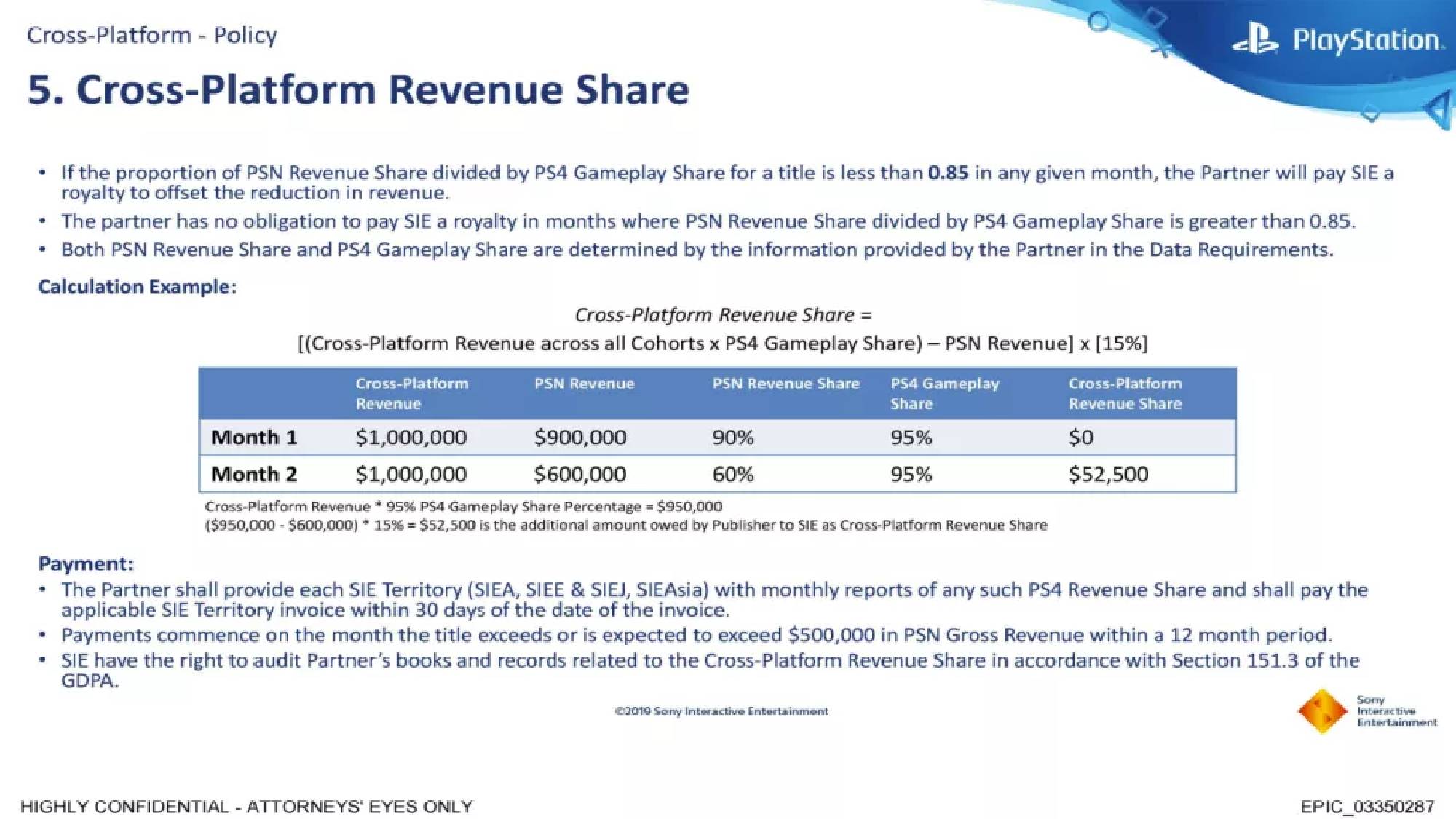Sony didn’t want cross-play on PS4 and PS5 — here’s why
Sony really didn’t want to allow cross-play for Fortnite

When it comes to console cross-play, Sony has always seemed a little hesitant compared to its rivals in Nintendo and Microsoft. In fact, it wasn’t until a significant public outcry in 2018 that Sony finally allowed the functionality starting with battle royal behemoth, Fortnite.
Prior to this Sony had been extremely reluctant to play ball, blocking cross-play on games such as Rocket League and Minecraft. Documents that have come to light during the ongoing Epic Games versus Apple lawsuit, have given us details on Sony’s demands that ultimately allowed gamers on PlayStation to play Fortnite (and other games) with friends on separate systems.
- PS5 restock update today: Track on Twitter, Walmart, Target and more
- iOS 14.5 guide — meet the biggest new features for your iPhone
- Plus: Nvidia RTX 3080 Ti release could be delayed — but it's still coming soon
After the backlash, which was primarily lead by Fortnite players, Sony agreed to allow cross-play on its platform in September 2018 but with the stipulation that it received compensation based on how much a game earned on a competing platform. The way this payment system works is outlined in a “cross-platform revenue share” agreement that Sony made (and may still make) publishers sign before the functionality can be enabled on PlayStation systems.
The revenue split is outlined below. It boils down to the fact Sony believes it’s unfair if a higher percentage of active players use its platform than the percentage of players who are buying in-game purchases. So if 95% of Fortnite players were playing through PlayStation, but only 60% of the revenue the game earned was through PlayStation transactions, Sony demands additional revenue to account for the difference.

Sony’s justification for this agreement is that it prevents the situation where a majority of a game’s player base is on its platform, while a disproportionate amount of revenue is earned on another platform. Sony is using this agreement to ensure that it receives a fair portion of revenue for essentially lending its user base to its competitors.
This document was first created in 2019, so it’s possible that Sony’s stance on cross-play has changed in the years since. Although based on comments made by Epic CEO Tim Sweeney that seems fairly unlikely, it was also confirmed that Sony is the only platform holder to have this sort of compensation system in place.
Epic CEO Tim Sweeney just confirmed that Sony is the only platform holder that requires Epic to pay compensation for crossplay. Epic had to agree to pay these additional fees to enable crossplay in Fortnite.May 3, 2021
Even after Epic twisted Sony arms to allow cross-play for Fortnite, and the feature has now been rolled out to additional titles like Call of Duty: Warzone and Destiny 2, Sony still seems unwilling to fully open up its platform to embrace gamers not playing on PS4 or PS5.
Sign up to get the BEST of Tom's Guide direct to your inbox.
Get instant access to breaking news, the hottest reviews, great deals and helpful tips.
While Microsoft is championing cross-play and cross-progression with its extensive backward compatibility offerings on the Xbox Series X and deep integration with PC gaming through Windows, Sony is decidedly more reluctant to allow gamers to play beyond the confines of a single system.
What's most disappointing about this document being made public knowledge, is that it shows that Sony didn't have a change of heart back in 2018 and see the value of cross-play for gamers. Instead, it shows that cross-play is only permitted on PlayStation so long as it remains a money earner for Sony, and should that change we can only assume that Sony would revert back to its hard-line stance.
As it stands cross-play is pretty evenly matched across the two platforms when it comes to multi-platform games at least. But perhaps in the future, Microsoft might decide it wants its own revenue sharing system in place if Sony isn't going to play ball without one. That could lead to cross-play becoming much rarer in the future as publishers decide it's just not worth the hassle of having to come to individual revenue-sharing agreements with multiple platform holders.
Sweetening the pot for Sony
This cross-play revenue share agreement isn’t the only interesting Sony-related morsel to come out of the Epic Games versus Apple lawsuit hearing.
We’ve also got details on how Epic attempted to sweeten the pot for Sony to get the Japanese tech giant to allow Fortnite cross-play on PlayStation platforms. Epic’s Joe Kreiner was fairly bullish in an early 2018 email exchange declaring that “I can't think of a scenario where Epic doesn't get what we want” and declaring Fortnite the “biggest game on PlayStation,” which in fairness is likely still accurate.

Kreiner attempted to entice Sony with the offer of sharing valuable marketing data, cross-promoting Fornite and PlayStation at that year’s E3 showcase, And promised that Epic would “make Sony look like heroes” when announcing full cross-play support.
The negotiations went a step further as well. Kreiner pitched a potential exclusive PSVR title down the line and even attempted to tighten the screw on Sony by pointing out that the company’s license on Epic’s Unreal Engine 4 would be up for renegotiation the following year.
Sony seemed pretty unmoved by Epic’s offers, with the company’s former senior director Gio Corsi writing back: “There are a lot of great ideas in here for continued partnership however cross-platform play is not a slam dunk no matter the size of the title. As you know, many companies are exploring this idea and not a single one can explain how cross-console play improves the PlayStation business."
This stance would later soften, clearly thanks to the creation of the revenue sharing scheme as outlined above. While these discussions are obviously water under the bridge at this point, it’s still extremely fascinating to get a rare glimpse at how these powerful companies negotiate terms behind closed doors.
The Epic Games versus Apple lawsuit is being fought over Epic’s attempts to circumvent Apple’s App Store fees, with the game publisher arguing that Apple has set up an unfair monopoly in return. The hearing is currently ongoing and could well reveal further behind-the-curtain information about the tech world before reaching its conclusion.
Back to Sony and its reluctance to easily embrace cross-play, such a stance could be detrimental to future PS5 games, as some developers might not want to enter into the revenue sharing agreement Sony seems to impose.
Now Sony's stance may have changed, and we're till seeking clarity on that. But the PS5 is a console you go are more likely to choose because of its current and future exclusive games, like Horizon Forbidden West, not cross-play. So far, it looks like the Xbox Series X and overall Xbox ecosystem is friendlier towards cross-play.

Rory is an Entertainment Editor at Tom’s Guide based in the UK. He covers a wide range of topics but with a particular focus on gaming and streaming. When he’s not reviewing the latest games, searching for hidden gems on Netflix, or writing hot takes on new gaming hardware, TV shows and movies, he can be found attending music festivals and getting far too emotionally invested in his favorite football team.
